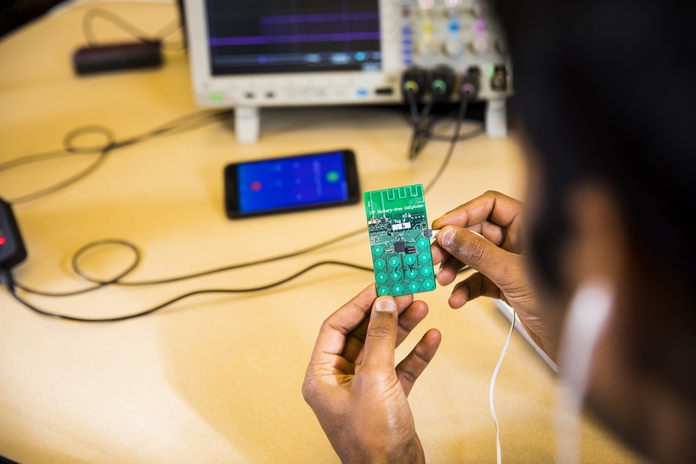That problem may be one step closer to being solved, though. In the future, phones may work without a battery. Scientists at the University of Washington have created a mobile phone prototype that doesn’t require a battery to operate. The phone consumes almost zero power and runs by obtaining energy from ambient radio signals or light. The research team demonstrated the prototype using Skype, and they were able to receive incoming calls, dial out numbers and place callers on hold with the battery-free phone. Though the battery-free phone still requires a small amount of energy to perform certain operations. The prototype has a power budget of 3.5 microwatts. The power is obtained from ambient light with a very small solar cell which is roughly the size of a grain of rice present in the prototype.
How does this battery-free phone work?
The battery-free phone takes advantage of tiny vibrations in a phone’s microphone or speaker that occur when the user is speaking or listening to a call. To transmit speech, the phone uses vibrations from the device’s microphone to encode speech patterns in the reflected signals. To receive speech, it converts encoded radio signals into sound vibrations that are picked up by the phone’s speaker. In the prototype, they press a button to switch between these two ‘transmitting’ and ‘listening’ modes. The prototype was able to perform basic phone functions- transmitting speech and data and receiving user input via buttons. The prototype of the phone is made of simple materials: capacitive touch buttons, a circuit board, and some off the shelf components.
The prototype operates on power obtained from ambient radio signals transmitted by a base station up to 50 feet away. The team demonstrated how to harvest this small amount of energy from two different sources. The prototype used power from ambient light with a tiny solar cell and was able to communicate with the base station. The researchers designed a custom base station to transmit and receive the radio signals. This technology can be integrated into standard cellular network infrastructure or Wi-Fi routers that are commonly used to make calls nowadays. Vamsi Talla, a research associate at UW said, “You could imagine in the future that all cell towers or Wi-Fi routers could come with our base station technology embedded in it, and if every house has a Wi-Fi router in it, you could get battery-free cell phone coverage everywhere.” The scientists also say that they want to improve the prototype by adding an e-ink display for video streaming and encryption to make the calls more secure.
